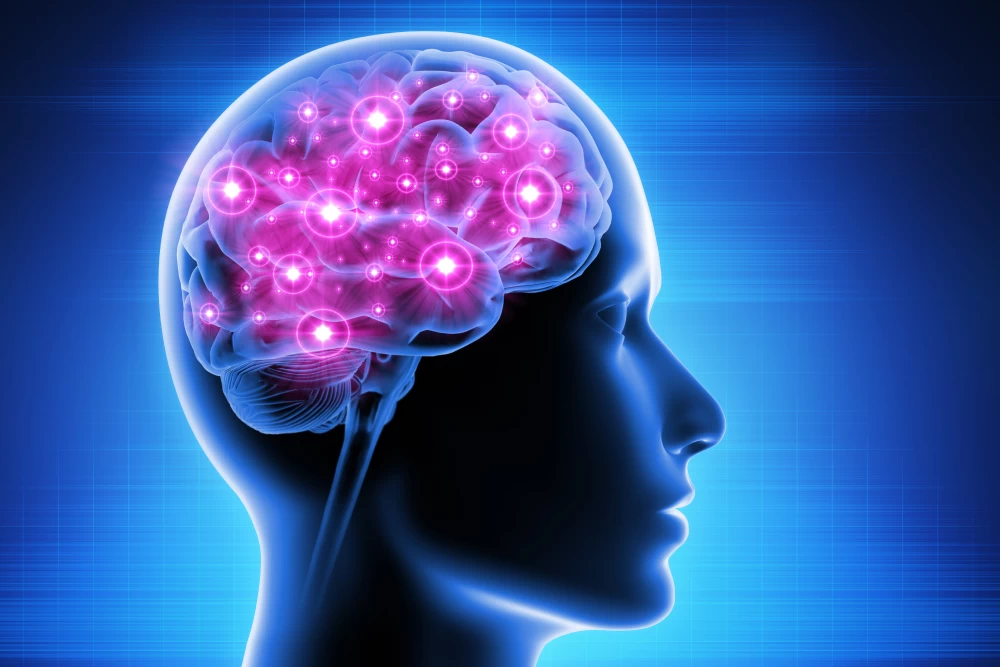
- 3rd May 2023
Table of Contents
Brain Fog and Periods of Fasting
Intermittent fasting is widely used as a means of reducing body fat, but it may also improve cognitive performance. However, fasting can cause mental fog for some people. As a result of the stress responses triggered when the body is starved, mental performance suffers. Anxiety and stress hormones like cortisol and adrenaline may be produced in greater quantities by the body during periods of intermittent fasting. These hormones have been shown to impair one's ability to concentrate and finish tasks efficiently. Low blood sugar levels, which can cause dizziness and confusion, can also be the result of not eating enough food or skipping meals. Getting enough food during feeding periods can help prevent intermittent fasting brain fog. Fruits, vegetables, whole grains, and protein-rich sources can aid in blood sugar regulation and improve cognitive performance. Drinking plenty of water throughout the day can also aid in maintaining focus and clarity of thought.
Intermittent fasting entails what?
Alternating periods of fasting and eating is the basis of the intermittent fasting diet. Fasting every other day, eating only at certain times, and periodic fasting are all examples of intermittent fasting. While individual plans may differ, they all have one thing in common: cutting down on how often you eat will result in weight loss. Intermittent fasting may help you concentrate and think more clearly. Calorie restriction has been linked in some research to improved cognition and less brain fog. However, not all studies find support for these assertions, and your mileage may vary. Though intermittent fasting has been linked to improved focus and concentration, it should be used with caution. For people with a history of eating disorders or those with certain medical conditions, fasting can be particularly taxing on the body and mind. Before making any drastic changes to your diet, it's best to talk to your doctor.

The Effect of IF on Concentration and Mental Clarity
The practise of intermittent fasting (IF) has recently gained popularity because of its purported health benefits. However, the effect of IF on mental clarity and focus is under appreciated. Calorie restriction causes the body to enter ketosis, a metabolic state in which fat stores are utilised for energy rather than glucose. Improvements in cognitive performance and acuity may result from this metabolic switch. In addition, research has shown that intermittent fasting can increase levels of brain-derived neurotrophic factor (BDNF), a protein that helps neuron divide and survive. Synaptic plasticity, or the brain's ability to change and learn, is greatly aided by BDNF as well. Therefore, IF may improve memory retention and recall abilities and focus if it is used regularly. However, because each person's body responds differently to dietary changes, these advantages may not apply to everyone. Furthermore, some people may not be able to benefit from intermittent fasting due to preexisting medical conditions. Therefore, it is strongly advised that you talk to your doctor before beginning an IF programme.
Why IF Can Make You Feel Disoriented
Intermittent fasting (IF) is a growing diet trend in which you eat normally except for set times of the day. Some IF practitioners have noted experiencing mental cloudiness. Dehydration can contribute to mental fogginess while intermittent fasting. Lack of hydration has been linked to slowed mental processing and fatigue. Blood sugar fluctuations are another potential cause of mental confusion during IF. Low blood sugar levels during fasting have been linked to diminished mental and physical performance. Brain fog can be exacerbated by eating foods that cause a rapid rise and subsequent fall in blood sugar levels, such as those high in sugar or carbohydrates. Last but not least, you might feel foggy-headed because of your IF diet. Lack of adequate vitamin and mineral intake through diet can have negative effects on mental health and general well-being. Those who choose to practise IF should make sure they are still getting enough of the nutrients they need every day, either through their normal diet or with the help of supplements.
Confusion and Memory Loss Are Common in IF

In recent years, intermittent fasting (IF) has become a popular diet trend, but it has been linked to neurotoxicity. Brain fog, characterised by a lack of mental clarity and focus, is a common IF side effect. Several things, such as being dehydrated, having low blood sugar, or experiencing a shift in hormone levels, can cause this. Brain fog is a common side effect of intermittent fasting (IF), and dehydration is a common cause of it. Dehydration occurs when you go without water for long periods of time, as in a fast. This can lead to mental fogginess, inability to focus, and headaches. During IF, low blood sugar levels can also contribute to mental fogginess. Without food for extended periods, blood sugar levels drop dangerously low. This can lead to lightheadedness, brain fog, and inability to concentrate. Hormonal fluctuations may also contribute to mental fogginess experienced during IF. Cortisol production rises in response to hunger and stress, prompting an increase in the rate at which glucose is released into the bloodstream. However, prolonged cortisol production can result in chronic stress and fatigue, which in turn diminishes both physical and mental capabilities.
Using IF to Overcome Confusion
The diet strategy of intermittent fasting (IF) for weight loss and health improvement is on the rise. However, the feeling of mental fatigue, confusion, and lack of focus is a potential side effect of IF that is often overlooked. Managing brain fog while on IF can be difficult, but the following suggestions can help. Prioritize getting enough food in during your allotted eating time. Lethargy and mental fatigue are common side effects of not eating enough or not eating the right kinds of food. Second, regardless of whether you're fasting or eating, you should always make sure to drink plenty of water. Brain fog can be made worse by not drinking enough water. Finally, add some healthy fats like avocados and nuts to your diet; they provide nutrients crucial to brain health. When engaging in IF, it is essential to pay attention to your body and make any necessary adjustments. If these methods fail to alleviate your brain fog, it may be time to see a doctor to rule out any underlying medical conditions that could be causing your symptoms.
